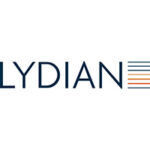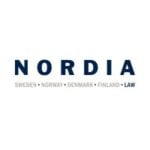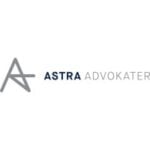-
What are the key financial crime offences applicable to companies and their directors and officers? (E.g. Fraud, money laundering, false accounting, tax evasion, market abuse, corruption, sanctions.) Please explain the governing laws or regulations.
The primary source of Swiss substantive criminal law is the Swiss Criminal Code (SCC), which encompasses provisions on criminal liability, sanctions, and specific criminal offenses.
However, criminal offenses may also be enacted in other federal laws relevant to specific legal fields, such as the Unfair Competition Act or anti-money laundering legislation.
For most criminal offenses, the general provisions of the SCC apply. In cases of specific administrative offenses, the Criminal Administrative Law Act is primarily applicable, supplemented by the provisions of the SCC.
The key financial crime offences applicable to companies and their directors are:
- Fraud (Article 146 SCC)
Involves deceiving another person to obtain an unlawful financial benefit, resulting in financial loss to the victim. - Embezzlement (Article 138 SCC)
Occurs when someone misappropriates assets entrusted to them, often seen in cases where employees or directors misuse company funds for personal gain. - Disloyal management (Article 158 SCC)
Involves breaches of duty by company managers, leading to financial damage. This can include self-dealing, unauthorized transactions, or grossly negligent management. - Forgery of documents (Article 252)
Involves creating, altering, or using false documents (including business records) with the intent to deceive and cause financial harm. - Bribery and Corruption (Article 322ter to 322octies SCC)
Encompasses both public and private bribery. Directors and officers can be held liable for offering, promising, or giving undue advantages to public officials or private individuals to influence their actions. - Money Laundering (Article 305bis SCC)
The process of concealing the origins of illegally obtained money, making it appear legitimate. Companies must implement measures to prevent money laundering within their operations.
- Fraud (Article 146 SCC)
-
Can corporates be held criminally liable? If yes, how is this determined/attributed?
Criminal proceedings in Switzerland are generally directed against individuals rather than legal entities. Typically, any individual involved in the questionable act may be subject to prosecution, encompassing not only those who executed the act but also those who resolved or directed that it be undertaken
Each individual bears responsibility for their own actions. Additionally, managers and directors may incur liability if they breach their supervisory duties, on the basis of an unlawful omission.
Under Swiss law, legal entities incur criminal liability only in limited circumstances. Generally, a company may be held liable where an offense committed within or on its behalf cannot be attributed to a specific individual (e.g., an employee) due to organizational deficiencies, known as “secondary liability” (Article 102 al. 1 SCC). This secondary liability is rarely applied in practice, as it is usually possible to identify and attribute a criminal act to a specific individual within the organization.
In addition, the Swiss Criminal Code provides for the direct liability of legal entities in connection with a limited set of offenses, including terrorist financing, money laundering, and bribery.. In such cases, the entity may be held liable if it failed to take all reasonable organizational measures necessary to prevent the offense. This liability is independent of, and cumulative with, the liability of the individual offender.
In both scenarios, the maximum fine cannot exceed CHF 5 million. In addition to the sanction, Swiss authorities may confiscate the proceeds that the legal entity obtained from the criminal acts.
-
What are the commonly prosecuted offences personally applicable to company directors and officers?
The commonly prosecuted offences personally applicable to company directors and officers are fraud (Article 146 SCC), embezzlement (Article 138 SCC), disloyal management (Article 158 SCC), forgery of documents (Article 252 SCC), bribery and corruption (Article 322ter to 322octies SCC), as well as money laundering (Article 305bis SCC), and in case the respective company goes bankrupt, a number of bankruptcy offences.
-
Who are the lead prosecuting authorities which investigate and prosecute financial crime and what are their responsibilities?
In Switzerland, the public prosecutor’s offices are in principle the prosecuting authority for any type of criminal offence, including financial crime cases.
Most investigations for financial crime are being conducted by the prosecutor offices at a cantonal level.
The Office of the Attorney General of Switzerland (OAG) focuses on matters of organized crime, money laundering and bribery/corruption matters if they have been committed outside of Switzerland or in different cantons (Article 24 CPC). With regard to other financial crimes, the jurisdiction of the OAG is limited and requires, in particular, that the cantonal authorities have not yet opened an investigation or have requested the OAG to take over.
The public prosecutor’s offices work closely with the police (in addition to the cantonal and local police departments, there is also a Federal Office of Police, called “fedpol”). The prosecutor may issue investigative orders or may delegate specific parts of an investigation to the police, such as for example the questioning of witnesses.
Other Swiss authorities that are important in the context of the investigation and prosecution of financial crimes are:
1. Money Laundering Reporting Office Switzerland (MROS)
MROS is the Swiss Financial Intelligence Unit (FIU) responsible for receiving and analyzing reports of suspicious financial activities.
MROS processes reports of suspicious transactions related to money laundering and terrorist financing and disseminates relevant information to law enforcement agencies for further investigation and potential prosecution.
2. Swiss Financial Market Supervisory Authority (FINMA)
FINMA is the regulatory body overseeing financial markets in Switzerland. Its mandate includes ensuring the stability of financial markets, protecting creditors, investors, and policyholders, and enforcing financial market legislation.
FINMA supervises financial institutions and can investigate and sanction regulatory breaches, including those related to money laundering and insider trading. While it does not prosecute criminal cases, it can refer matters to the Federal Department of Finance (FDF, cf. below), the OAG or the cantonal prosecutor’s offices for investigation. Additionally, FINMA can impose a variety of sanctions on both the supervised financial institution and individuals in positions of responsibility within the institution. These sanctions may include fines, restrictions on business activities, and the revocation of licenses.
3. Federal Department of Finance (FDF)
The Federal Department of Finance (FDF) is one of the seven departments of the Swiss Federal Administration and functions as Switzerland’s finance ministry. It oversees the federal budget, taxation, customs, financial market policy, and international financial relations, while also managing federal IT, personnel, and logistics.
The FDF is competent in criminal law enforcement primarily in the financial and banking sectors. Its Legal Service, Section Criminal Law, conducts administrative criminal proceedings, investigates alleged violations of financial regulations, and verifies evidence submitted by reporting authorities. The FDF can hold both individuals and, in certain cases, legal entities liable.
4. Tax authorities
Swiss tax authorities, including the Federal Tax Administration (FTA) and cantonal tax offices, play a critical role in enforcing compliance with tax laws and combating tax-related financial crimes. They have powers to audit individuals and corporations, access financial records, request information from third parties, and issue administrative penalties for tax evasion or non-compliance. In cases of suspected criminal tax offenses, tax authorities can refer matters to the relevant prosecuting office, and their findings often serve as a foundation for criminal investigations. Additionally, Swiss tax authorities have information exchange powers under domestic law and international treaties, enabling them to cooperate with foreign tax administrations and financial regulators in cross-border tax investigations. While they primarily enforce tax compliance, their activities often intersect with criminal investigations, particularly where tax evasion, fraud, or money laundering is suspected.
-
Which courts hear cases of financial crime? Are they determined by tribunals, judges or juries?
In Switzerland, financial crime cases are heard by different courts depending on the severity and nature of the crime, as well as the jurisdictional level (cantonal or federal).
Since most financial crimes are being prosecuted on a cantonal level, cantonal courts handle the majority of cases. Each canton has its own judiciary, including lower courts (district or regional courts) and higher courts (cantonal courts of appeal).
Cases falling under federal jurisdiction are heard by the Federal Criminal Court. Since 2019, an Appeal Chamber has been part of the federal system to handle appeals within this court.
Appeals on points of law can be taken to the Federal Supreme Court: As the highest judicial authority in Switzerland, the Federal Supreme Court reviews appeals on points of law from lower federal and cantonal courts, including financial crime cases.
-
How do the authorities initiate an investigation? (E.g. Are raids common, are there compulsory document production or evidence taking powers?)
A criminal investigation may be triggered by the authorities or by private individuals/companies:
1. Initiation by authorities
The police are required to report criminal acts they observe during their work to the public prosecutor’s office. For other officials and authorities, the obligation to initiate a criminal investigation (reporting duty) is still largely governed by cantonal law and therefore varies across Switzerland. Authorities and officials, like private individuals, have the right to file a criminal complaint.
In financial crime matters, investigations are often triggered by the report of another authority (such as, for example, the Swiss Money Laundering Reporting Office MROS or the Swiss Financial Market Supervisor FINMA).
2. Initiation by private individuals/companies
Private individuals have the right to file a criminal complaint, which may also trigger a criminal investigation. Some offenses in Swiss law are even only pursued by the authorities if a private individual submits a criminal complaint (although economic crimes are generally pursued ex officio, i.e. even without complaint of the injured party).
If there is reasonable suspicion that an offense has been committed or if compulsory measures are required, the prosecutor will open a formal investigation.
During this investigative phase, the prosecutor directs and conducts the investigation. He is responsible for gathering evidence (but may give certain assignments to the police). This includes hearing witnesses, requesting documents from involved individuals, entities, and third parties, ordering dawn raids, and interrogating witnesses and/or the accused.
In fact, it is quite common in most cantons that the vast majority of the evidence (including the questioning of witnesses and the accused and the engaging of experts) is gathered by the prosecutor rather than by a court. This is due to the fact that the court does not have to and will not, in practice, repeat the taking of the entire evidence in open court (e.g. by hearing witnesses or experts).
Moreover, the prosecutor in charge has a very broad authority to order compulsory measures. For instance, the prosecutor does not require a court issued order to make a dawn raid or to issue (compulsive) orders to third parties to produce documents. It is common that the prosecutor makes broad use of these powers.
Against this background,
In particular, it has become fairly common in financial crime investigations that the prosecutor will request the defendant(s) to be put in pre-trial custody in order to prevent the risk of collusion. Whilst doing so requires a court order, it rarely happens that that court would refuse such a request made by the prosecutor. This is a particularly important feature of Swiss criminal investigations (also because there is no strict maximum duration of pre-trial custody) and pre-trial custody significantly shifts the leverage within a criminal investigation towards the prosecution.
The prosecutor must seek the “material” truth ex officio and investigate both exculpatory and incriminatory circumstances with equal diligence.
-
What powers do the authorities have to conduct interviews?
Interviews and interrogations of the accused and witnesses are generally conducted by the public prosecutor , and in some cases by the courts (see Article 142 CPC). Depending on the stage of the proceedings, the police may also question accused persons or persons providing information, in particular when the prosecutor has delegated this task. In such instances, the police may conduct the questioning on behalf of the public prosecutor.
The criminal authorities (namely the public prosecutors as well as the courts) may summon individuals they wish to interrogate to a hearing. Failure to comply with such a summons without valid justification may result in a fine and the person may also be compelled by the police to appear before the competent authority.
-
What rights do interviewees have regarding the interview process? (E.g. Is there a right to be represented by a lawyer at an interview? Is there an absolute or qualified right to silence? Is there a right to pre-interview disclosure? Are interviews recorded or transcribed?)
The person questioned by the criminal authorities has the right to be heard in a language that he or she understands, and therefore the authorities must provide an interpreter, if necessary.
Every person questioned by the criminal authorities has the right to be assisted and represented by a lawyer, regardless of their procedural status—whether as the accused, a witness, or an informant.
Article 130 CPC requires the mandatory appointment of a defence lawyer in cases where
- The accused has been in pre-trial custody for over 10 days;
- the accused faces a potential prison sentence exceeding one year or a custodial measure
- the offence concerned may result in the expulsion from Switzerland.
- the accused cannot adequately safeguard his or her interests in the proceedings adequately due to his or her physical or mental condition or for other reasons, and his or her statutory representative is unable to do so either
- the public prosecutor is appearing in person before the court of first instance or the court of appeal
- accelerated proceedings are being conducted.
If the accused lacks the necessary financial means and requires a defence lawyer to safeguard his or her interests, a “duty defence lawyer” is appointed by the authorities. , The costs are initially covered by the state but may have to be reimbursed if the accused is convicted and has sufficient financial means at a later stage.
At the start of an interrogation by the criminal authorities, the individual must be advised of the subject matter of the criminal proceedings, their procedural role, and be fully informed about their rights and obligations.
The person being interviewed by the authorities may have the right to remain silent, depending on their procedural status:
1. Accused
The criminal justice authorities may question the accused at any stage of the criminal proceedings regarding the alleged offences. However, the accused as the right to remain silent, is not obliged to cooperate with the investigation, and no adverse inference may be drawn if they exercise this right (nemo tenetur).
2. Witness
A witness is a person who is not suspected of involvement in the offence under investigation but is able to provide information that may assist the proceedings.
A witness is in principle obliged testify truthfully and may face sanctions for non-compliance. However, the witness has the right to refuse to testify in certain circumstances – for example where they have a personal relationship with the accused, where giving testimony would be self-incriminating, or where they are bound by official or professional secrecy.
3. Persons providing information
Swiss law provides for a third category of individuals to be heard, referred to as a “person providing information.” This status applies in various situations (see Article 178 CPC), such as when an individual is asked to testify but cannot be excluded as a potential participant in the offence under investigation, or when the individual is a representative of the private claimant Such person provides information relevant to the case but does not have the same status or obligations as a witness or an accused person. The person providing information has the right to remain silent and cannot be sanctioned for exercising this right.
The parties to the criminal proceedings (i.e. the accused and the injured party) have the right to inspect the documents relating to the criminal proceedings at the latest following the first interview with the accused and the gathering of the other most important evidence by the prosecutor. In practice, particularly in financial crime cases, file access is often withheld until after the first interview with the accused and may even be refused thereafter, given the broad discretion afforded to the prosecutor.
-
Do some or all the laws or regulations governing financial crime have extraterritorial effect so as to catch conduct of nationals or companies operating overseas?
Swiss law, and in particular the laws and regulations governing financial crime, do not apply solely to acts committed in Switzerland.
In particular, Swiss law also applies where the offence had effects in Switzerland, or—specifically in cases of money laundering—where assets originating from an offence committed abroad were transferred into Switzerland.
Furthermore a person who committed an offence abroad may be held liable in Switzerland if (i) the act was also punishable in the place of commission, (ii) the person is present in Switzerland or has been extradited to Switzerland in connection with the offence, and (iii) Swiss law would in principle allow extradition for such an offence, but the person is not extradited.
If neither the alleged perpetrator nor the injured party holds Swiss nationality, Swiss jurisdiction further requires either that (i) a request for extradition was refused for reasons unrelated to the nature of the offence, or (ii) the offender committed a particularly serious felony prohibited under international law. Swiss laws may also have extraterritorial effect where provided in an international treaty, provided that
- the act is also liable to prosecution at the place of commission or no criminal law jurisdiction applies at the place of commission; and
- the person concerned remains in Switzerland and is not extradited to the foreign country.
-
Do the authorities commonly cooperate with foreign authorities? If so, under what arrangements?
Swiss authorities commonly cooperate with foreign authorities. This cooperation is particularly robust in the areas of financial crime, terrorism, and organised crime. Swiss authorities actively engage in information exchange and collaborative investigations with their counterparts abroad to address cross-border criminal activities effectively. This cooperation may include sharing evidence, conducting joint investigations, and executing requests for legal assistance.
Mutual legal assistance in criminal matters between Switzerland and other countries is based on multilateral or bilateral international treaties with other countries. Switzerland has established various of these agreements to facilitate international cooperation. Where no treaty exists, Switzerland regularly grants mutual legal assistant in application of the Federal Act on International Mutual Legal Assistance in Criminal Matters. In this context, the Swiss Federal Office of Justice (FOJ) and the Office of the Attorney General (OAG) play key roles in managing and facilitating international requests for legal assistance.
In addition to formal agreements, Switzerland’s proactive stance includes participating in international task forces and initiatives aimed at tackling global crime issues.
-
What are the rules regarding legal professional privilege? What, if any, material is protected from production or seizure by financial crime authorities?
In Switzerland, legal professional privilege primarily protects attorney–client communications and all information disclosed to, or obtained by, an attorney in the course of their professional activities, namely legal advice and representation.. The information is protected regardless of whether it has been obtained through written, oral or non-verbal communication, from the client or a third party or by the attorney themselves. Other activities, in particular also compliance-related work (for internal investigation results cf. below) is not covered by the privilege.
The attorney-client privilege is protected by a number of provisions:
1. The Federal Act on the Free Movement of Lawyers (FMLA)
The Act regulates the professional activities and qualifications of lawyers in Switzerland, ensuring the free movement and professional standards of lawyers within the country. Article 13 FMLA provides that attorneys admitted to practice in Switzerland must keep all information that has been entrusted to him or her by a client confidential.
2. Swiss Criminal Code (SCC) and Swiss Criminal Procedure Code (CPC)
Article 321 SCC provides that the intentional breach of the professional secrecy obligation by an attorney is a criminal act and subject to a monetary penalty of custodial sentence.
Article 264 CPC provides the right to refuse to disclose attorney-client communication and attorney work products, provided that the information relates to the attorney’s typical professional activity, i.e. legal advice and representation. It also allows the client and the attorney to refuse to testify with respect to attorney-client communications.
3. Other laws protecting the attorney-client privilege
The attorney-client privilege is also enshrined in other procedural laws, in particular the Swiss Civil Procedure Code as well as the Swiss Federal Act on Administrative Procedure.
The Swiss attorney–client privilege does generally does not extend to in-house counsel. Accordingly, communications between employees of a corporation and in-house counsel are usually not privileged. However, under the recent revision of the Swiss Civil Procedure Code, an in-house counsel privilege has been introduced as of 1 January 2025. This privilege applies exclusively in civil proceedings and cannot be invoked in criminal proceedings.
-
What rights do companies and individuals have in relation to privacy or data protection in the context of a financial crime investigation?
The Swiss Data Protection Act (DPA) does not apply to criminal proceedings. Instead, the processing of personal data and the rights of data subjects in such proceedings are governed by the applicable procedural law (Article 2 para. 3 DPA). In the context of criminal proceedings, this means that only the Criminal Procedure Code is relevant for issues concerning privacy and data protection rights.
Privacy and data protection concerns can hardly be invoked to prevent Swiss criminal authorities from proceeding in a certain manner. Such rights are usually overridden by the law enforcement interest, i.e. the interest to investigate and prosecute criminal activity.
This means that the criminal authorities are usually allowed (if the conditions set out in the law are met) to collect all the data that they deem necessary for investigating a crime (but they should follow the principle of proportionality, meaning that that authorities must balance the need to collect data against the individual’s right to privacy). In practice, however, this is not so much of a limitation. It is very common that vast sets of confidential information is being collected (e.g. bank records of various people involved) and become part of the criminal file.
It is worth noting, however, that the criminal file is not automatically public: As opposed to criminal proceedings before the court of first instance and the court of appeal which are both public (Article 69 para. 1 CPC), the criminal investigation as such (i.e. the investigation phase before the formal indictment) is not public (Article 69 para. 3 CPC). In addition, members of the criminal justice authorities, their employees and experts appointed by criminal justice authorities are subject to secrecy obligations and therefore have to treat as confidential information that comes to their knowledge in the exercise of their official duties.
Still, the parties to the proceedings (the plaintiff, the accused, etc.) have the right to access the case file. This access may be restricted if a party abuses its rights or if it is necessary to safeguard private or public interests in preserving confidentiality (Article 108 para. 1 CPC). Furthermore, even if the access is granted, the prosecutor may order (for a limited period of time) that plaintiffs and other persons involved in the proceedings and their legal agents have to maintain confidentiality with regard to the proceedings and the persons concerned. In practice, however, it is generally difficult to limit access to the criminal file provided that the information in question is tangentially relevant for the proceedings. Moreover, the parties may use the information obtained in the criminal proceedings for other purposes, as well.
-
Is there a doctrine of successor criminal liability? For instance in mergers and acquisitions?
Swiss law contains no specific provisions on successor liability.
It is, however, undisputed that the individual criminal liability cannot be transferred to another individual (e.g. its successor) since one can only be held criminally liable, if all liability requirements are personally fulfilled (the criminal liability is intuitu personae).
The same principle applies to corporations. However, the question whether the criminal liability of a company survives corporate transactions (e.g. a merger or an acquisition) remains disputed. Therefore, the company that acquires a target that has been engaged in criminal conduct has a certain risk to be held criminally liable (and or to be the subject of confiscation orders or the likes) for the acts of the target. A lot will depend on the specific form of the corporate transaction.
By contrast, it is well settled case law that the status of an injured corporate party (and thus that of a plaintiff in criminal proceedings) does not transfer to a successor company. However, if an injured individual dies without waiving his or her procedural rights as a private claimant, such rights pass to his or her relatives (Article 121 CPC).
-
What factors must prosecuting authorities consider when deciding whether to charge?
In Switzerland, public prosecutors have only very limited discretion to refrain from bringing charges or to close proceedings. As a rule, the prosecutor must file charges with the competent court if, based on the investigation, sufficient grounds for suspicion exist and no clear justification or procedural impediment applies.
Moreover, the prosecutor is required to bring charges even if doubts remain as to whether an offence was committed , leaving it to the court to determine whether a crime occurred. The accused cannot contest or appeal the prosecutor’s decision to bring charges.
In particular, Article 52 CPC—suggesting that the prosecutor may refrain from bringing charges in minor cases where the accused has repaired the damage—is rarely applied.. The provision requires that (a) the accused has repaired the damage or made every reasonable effort to do so; (b) the offender has admitted the offence; (c) the potential custodial sentence does not exceed one year; and (d) the interests of the public and the injured parties in prosecution are negligible. In practice, however, the last condition is very rarely deemed given (in particular by the OAG).
-
What is the evidential standard required to secure conviction?
In Switzerland, the evidentiary standard required for a conviction in criminal cases, including financial crimes, is the principle of “in dubio pro reo”. This principle corresponds to the “beyond a reasonable doubt” standard in common law jurisdictions: if any reasonable doubt remains as to the accused’s guilt, the court must acquit.
The burden of proof rests with the prosecutor. The prosecutor must present sufficient evidence to prove the accused’s guilt for each element of the offense beyond a reasonable doubt. This is a high threshold, requiring that the evidence presented be so convincing that there is no reasonable doubt in the mind of the judge regarding the accused’s guilt.
-
Is there a statute of limitations for criminal matters? If so, are there any exceptions?
The SCC establishes statutes of limitation both for prosecuting a criminal offence and for enforcing a criminal sentence.
1. Limitation of prosecution rights
For financial crimes, the typical statute of limitation period is 10 or 15 years (depending on the potential sanction).
The limitation period is met if a first instance judgement was rendered within this time period. Thereafter, the limitation of the prosecution right is no longer relevant (even if the first instance judgement was vacated or reversed).
The limitation period generally starts from the day the offense was committed. In cases of continued or repeated offenses, the period begins when the criminal activity ceases. If an offence is committed by omission, the limitation period begins when the obligation to act comes to an end.
2. Limitation period for the execution of a sentence
The statutes of limitations relating to the execution of a sentence specify the time periods within which a sentence must be carried out after a conviction. he duration of this period depends on the severity of the penalty imposed:
- 30 years if a custodial sentence of life has been imposed;
- 25 years if a custodial sentence of ten or more years has been imposed;
- 20 years if a custodial sentence at least five and less than ten years has been imposed;
- 15 years, if a custodial sentence of more than one and less than five years has been imposed;
- five years if any other sentence has been imposed
The limitation period for the execution of a sentence typically begins when the judgment becomes final and binding, meaning there are no more possibilities for appeal or the appeal process has been exhausted.
-
Are there any mechanisms commonly used to resolve financial crime issues falling short of a prosecution? (E.g. Deferred prosecution agreements, non-prosecution agreements, civil recovery orders, etc.) If yes, what factors are relevant and what approvals are required by the court?
Cf. answers to question 18.
In addition, financial crimes cases are frequently settled between the injured party and the accused company or individual.
Where offences are prosecutable only upon the complaint of the injured party, the criminal authorities will discontinue proceedings if the complaint is withdrawn.
In case of offenses that are prosecuted “ex ufficio”, proceedings do not automatically terminate upon withdrawal of a complaint. The injured party however may submit a formal declaration to the criminal authorities, stating that it does not longer want the state to prosecute the case. This typically leads to the termination of proceedings unless there is a public interest in prosecution.
-
Is there a mechanism for plea bargaining?
In Switzerland, there are no legal provisions that provide for the concept of plea bargaining as it exists in common law countries. However, Switzerland does have mechanisms that resemble plea bargaining to a limited extent, allowing agreements with the prosecution in specific circumstances.
In general, fewer than 10 % of all convictions result from ordinary court proceedings. Most criminal cases are resolved in so-called “accelerated” or “summary penalty order” proceedings. This is particularly true in financial and corporate crime cases, where out-of-court settlements are common.
1. Accelerated or “Summary” Proceedings (Article 358 et seqq. CPC)
The accelerated proceedings may be applied if (1) the accused admits the facts essential to the legal assessment of the relevant offence, (2) the accused admits (in principle) the civil claims (if any), and (3) the prosecutor requests a custodial sentence shorter than five years. If these conditions are met, the accused may file a request for accelerated proceedings with the prosecutor who will then discuss with the parties the charges, the sentence and the civil claims.
If an agreement is reached, the prosecutor will submit the agreed indictment to the parties. The parties are given 10 days to oppose to the proposed indictment. If any party opposes to the accelerated proceedings, ordinary proceedings must be conducted. If the involved parties do not oppose, the indictment is submitted to the court and a hearing will take place in which the court decides whether (1) the conduct of accelerated proceedings is lawful and reasonable, (2) the charges correspond to the result of the main hearing and the files, and (3) the requested sanctions are equitable. The court does however not conduct any investigations. The court either confirms the indictment or sends the case back to the public prosecutor to commence an ordinary procedure.
2. Summary penalty order proceedings (Article 352 et seqq. CPC)
Another avenue for reaching an agreement with the criminal authorities is through summary penalty order proceedings. The prosecutor may issue a summary penalty order provided that (1) the accused accepts his responsibility for the offence or if his responsibility has otherwise been established and if (2) the sentence to be imposed does not exceed six months’ imprisonment.
The summary penalty order proceedings offer certain advantages compared to the accelerated proceedings: they are faster, and if the order is not appealed (i.e., no objection is filed), the case is never submitted to court review, thereby avoiding the publicity of a criminal trial.
Furthermore, the accused may accept a summary penalty order—including the sanctions and fines imposed—at the time it is issued by the prosecutor. By admitting the summary penalty order and waiving the right to file an objection, the summary penalty order takes immediate legal effect and is final and binding. Thus, the parties have the certainty that the negotiated summary penalty order is valid and will not be challenged. This represents a major advantage compared to settlements in accelerated proceedings, which provides for mandatory review and confirmation of the indictment by the criminal court of first instance.
For the criminal authorities, the penalty order proceedings are particularly suitable in cases against companies, given that the upper limit of the fine is set as high as CHF 5 million and there are no maximum amounts when it comes to the forfeiture of assets.
-
Is there any obligation to disclose discovered misconduct to prosecuting authorities, or any benefit to making a voluntary disclosure? Is there an established route or official guidance for making such disclosures?
Swiss law does not impose a general obligation to disclose or self-report discovered misconduct to the authorities.
However, companies and individuals in certain sectors, such as financial institutions, may have mandatory reporting obligations that require self-reporting.
With the exception of antitrust cases (where self-reporting and providing substantial evidence can result in full or partial immunity from fines), there is no binding or official guidance with respect to voluntary disclosures / self-reporting.
Some authorities, in particular the OAG, try to incentivize voluntary disclosures by stressing the advantages of the benefits of self-reporting (and by publishing “favourable” resolutions of cases which were triggered by self-reporting).
Indeed, courts and prosecutors may consider self-reporting as a mitigating factor, potentially leading to reduced sentences or fines. Article 48 SCC explicitly states that a court shall reduce the sentence if the accused has shown genuine remorse and has made reparation for the damage or loss caused. However, Swiss law does not allow the resolution of a case by way of a non-prosecution agreement in case of voluntary disclosure and it is oftentimes unclear to what extent potential sanctions will be reduced by a voluntary disclosure.
As a result, voluntary disclosure is relatively rare. Nonetheless, voluntary disclosure combined with full cooperation during a criminal investigation can help facilitate negotiations with prosecutors, potentially leading to agreements within the framework of the procedures outlined under Q18.
-
What rules or guidelines determine sentencing? Are there any leniency or discount policies? If so, how are these applied?
There are no general and binding rules or guidelines for sentencing or charging decisions of courts or prosecutors. Quite to the contrary, the range of potential sanctions is extremely broad (oftentimes from a few monetary day fines on probation to several years of custodial sentence).
In general, Swiss criminal law distinguishes between sentences and measures: Sentences include imprisonment, monetary penalties, and fines. Measures—particularly relevant in financial crime cases—include asset confiscation, compensation claims, and, in certain cases, professional bans (e.g., prohibiting an individual from working in the financial sector).
Individuals convicted of financial crimes may face imprisonment for up to ten years. Monetary penalties range from 3 to 180 daily units, with the court determining the number based on the offender’s level of culpability. The value of each daily unit typically varies between CHF 30 and CHF 3,000, depending on the financial situation of the defendant (Article 34 SCC).
When determining sentences, the court considers the offender’s culpability, which includes factors such as prior conduct, personal circumstances, and the sentence’s impact on the individual’s life. Culpability is assessed by examining the seriousness of the harm or risk to the legal interest, the reprehensibility of the conduct, and the offender’s motives and objectives.
-
How are compliance procedures evaluated by the prosecuting authorities and how can businesses best protect themselves?
Compliance and other organizational measures in place within a legal entity at the time a criminal offense is committed are highly relevant in determining the entity’s potential criminal liability.
When it comes to the subsidiary corporate liability, which is applicable in cases where it is not possible to attribute a criminal act to a specific individual within a legal entity, the legal entity can be held liable for its inadequate organisation. In case of cumulative criminal liability, which is for example applicable in money laundering and bribery cases, the legal entity can be held criminally liable in addition to the individual that committed the criminal act, if the legal entity failed to take all the reasonable organisational measures that are required in order to prevent the respective criminal offenses.
Accordingly, the likelihood that a legal entity is held liable for criminal acts committed within their organization increases if the legal entity does not have adequate compliance procedures in place. Furthermore, the level of organisational deficiencies is one of the main criteria for the criminal authorities to define the amount of the fine that is imposed to a legal entity that is held criminally liable. Finally, financial criminal authorities may also consider excluding or reducing a fine imposed on a corporation, depending on the severity of the offense and the steps taken since its occurrence to enhance the organization. This may include improvements in compliance procedures, ongoing employee training, increased levels of supervision, and similar measures.
While compliance and other organizational measures are important in evaluating a company’s criminal liability, they hold no significance in the context of asset forfeiture. Criminal authorities can seize and forfeit assets derived from criminal activities, regardless of whether the asset owner was directly involved in any wrongdoing.
-
What penalties do the courts typically impose on individuals and corporates in relation to the key offences listed at Q1?
In case of Fraud (Article 146 SCC) and Embezzlement (Article 138 SCC), the offender is liable to imprisonment of up to five years or a monetary penalty. In severe cases (in particular if the offender acts for commercial gain), the offender is liable to imprisonment of up to ten years or a monetary penalty.
Disloyal management (Article 158 SCC) and money laundering (Article 305bis SCC) is punished with custodial sentence not exceeding three years or a monetary penalty. In severe cases, the custodial sentence can be raised to up to five years.
Finally, Forgery of documents (Article 251 SCC) and the bribery of Swiss public officials (Article 322ter and 322septies SCC) are sentenced with up to five years of imprisonment, whereas the bribery of private individuals (Articles 322octies to 322novies SCC) is punished with up to three years of imprisonment or a monetary penalty.
As already mentioned above, legal entities in principle incur criminal liability under Swiss law only if an act committed within or on behalf of the entity cannot be attributed to a specific individual (e.g., an employee) due to organizational deficiencies (secondary criminal liability). Only in case of a few specific offenses listed in Article 102 para 2 SCC, legal entities may be criminally liable in addition to the individual that committed the crime. In both cases, the fine that can be imposed to the legal entity cannot exceed 5 Million Swiss Francs.
Sentences for financial crimes in Switzerland tend to be relatively lenient, particularly for first-time offenders. Monetary penalties or custodial sentences rarely exceed two years, and execution is often suspended. However, the actual sentence depends on the specific circumstances of each case.
In financial crime cases, the most impactful penalties often consist not of imprisonment or fines but of asset forfeiture, compensation claims, the length of the criminal proceedings, and, in the case of individual offenders, pre-trial detention. These factors frequently constitute the most severe consequences for the offender.
-
What rights of appeal are there?
The Swiss criminal law system provides multiple avenues for appeal at different levels, including cantonal courts, the Swiss Federal Supreme Court, and potentially the ECHR. Individuals and entities can challenge factual findings, legal interpretations, and procedural errors through these appeals. However, the scope of review narrows as cases progress to higher courts, particularly at the Federal Supreme Court, where only legal and constitutional issues are typically reconsidered.
In Swiss criminal proceedings, there are two main types of “appeals”, i.e. the objections against decisions and acts of the prosecutor during the criminal investigation, and appeals against court orders and decisions.
Certain acts and decisions made by the prosecutor during the criminal investigation can be appealed before a final judgment. These appeals generally address procedural issues or decisions affecting the parties’ rights during the investigation, such as legal errors or procedural violations. The deadline for the objection/appeal is typically 10 days.
Beyond objections and appeals of the prosecutor’s acts and decisions during the investigation phase, the first level of appeal in Swiss criminal law typically involves appealing a lower court’s decision to a higher cantonal court. Most cantons have specialized criminal appeal courts or chambers that review decisions of the first-instance courts. A party can appeal on various grounds, including legal errors, misinterpretation of the facts, procedural violations, or an unjust or disproportionate sentence. Appeals must be filed within a specific timeframe, typically 10 days from the notification of the decision (for judgments).
Following a cantonal appeal, parties may take their case to the Swiss Federal Supreme Court. This is Switzerland’s highest judicial body and provides a final review of legal issues. Appeals to the Federal Supreme Court are generally limited to issues of law, such as incorrect application of federal law, including constitutional law, or violations of international treaties to which Switzerland is a party. The court typically does not reconsider factual matters unless they directly involve a constitutional issue.
Finally, even after a case is closed and a judgment is final, under certain exceptional circumstances, a party may file a motion for a review (retrial). Grounds for a review include the discovery of new evidence, procedural fraud, or a violation of rights that could have altered the outcome of the case.
-
How active are the authorities in tackling financial crime?
Swiss authorities are highly active in tackling financial crime, reflecting the country’s commitment to maintaining the integrity of its financial system and complying with international standards.
Key institutions include the Financial Market Supervisory Authority (FINMA), which oversees financial institutions for compliance with anti-money laundering (AML) and counter-terrorism financing (CTF) regulations, and the Office of the Attorney General (OAG), responsible for prosecuting serious financial crimes like money laundering, corruption, and fraud. Additionally, the Money Laundering Reporting Office Switzerland (MROS) serves as the national central office for receiving and analysing reports of suspicious financial activities, working closely with financial institutions and other stakeholders.
Legislative measures play a crucial role in Switzerland’s fight against financial crime. The Anti-Money Laundering Act (AMLA) imposes stringent requirements on financial institutions, such as identifying and reporting suspicious transactions and performing due diligence. The SCC outlines severe penalties for various financial crimes, including fraud, embezzlement, insider trading, and corruption. Swiss authorities actively engage in international cooperation and facilitate cross-border investigations as well as information sharing.
Despite ongoing efforts—including investments in training, advanced technologies, and updates to regulatory frameworks—Swiss criminal authorities continue to face a significant case overload, which affects the efficiency of prosecutions. In particular, the length of criminal proceedings in complex financial crime cases remains a challenge and an area for potential improvement.
-
In the last 5 years, have you seen any trends or focus on particular types of offences, sectors and/or industries?
Over the past five years, Swiss criminal authorities have increasingly focused on financial crimes, particularly money laundering. As a major global financial hub, Switzerland has faced growing domestic and international pressure to combat illicit financial activities. Enforcement efforts have concentrated on complex financial networks, offshore accounts, and cross-border transactions, targeting both financial institutions and professionals—including bankers and fiduciaries—who may facilitate such schemes.
Another notable trend is the heightened scrutiny of the cryptocurrency and fintech sectors. The rapid rise of these industries has brought new challenges, particularly concerning the potential for fraud, money laundering, and other financial crimes. Swiss regulatory bodies, including FINMA, have responded with stricter monitoring and enforcement actions, ensuring that these new technologies comply with existing anti-money laundering regulations.
In addition, many companies have strengthened compliance programs and other activities to prevent potential Environmental crimes (or the related “greenwashing”). However, there has been no noticeable increase in criminal investigations around that topic. It is to be expected that the broader global shift towards holding companies accountable for their environmental impact may lead to an increased scrutiny by the Swiss authorities which will ultimately start triggering more investigations and prosecutions related to environmental violations.
-
Have there been any landmark or notable cases, investigations or developments in the past year?
In March 2025, the Office of the Attorney General of Switzerland, the Serious Fraud Office (UK), and the Parquet National Financier (France) have announced that they have launched a task force to tackle bribery and corruption. The taskforce’s primary objectives are to consolidate the existing ties between these countries and to promote enhanced collaborative efforts on cases, as well as facilitate knowledge-sharing and the exchange of expertise. It remains to be seen what the new task force will entail and whether it will create new channels to further strengthen cooperation between the three countries in the fight against corruption.
In addition, there have been several significant cases in the past year when it comes to internal investigations.
In the summer of 2024, the Federal Supreme Court handed down a remarkable ruling that further strengthens attorney-client privilege. In this landmark decision, the Supreme Court clarified the scope of attorney-client privilege in connection with internal investigations. First, the Supreme Court confirmed that both the fact-finding activities and the selection of relevant documents conducted by an external law firm during a litigation-related internal investigations are protected by attorney-client privilege. In addition, the Supreme Court clarified that the submission of privileged documents to the Swiss Financial Market Supervisory Authority (FINMA) does not constitute a waiver of this privilege.
This decision was followed recently by another landmark ruling in the area of internal investigations in connection with FINMA proceedings. In summer 2025, the Supreme Court ruled that evidence submitted to FINMA based on regulatory cooperation duties could not be used in subsequent criminal proceedings if FINMA had not informed the affected individuals or legal entities of their right against self-incrimination. This decision confirmed that the nemo tenetur right takes precedence over the duty to cooperate with FINMA when cooperation could lead to prosecution of the respondent.
-
Are there any pending or proposed changes to the legal, regulatory and/or enforcement framework?
In January 2024, the revised Swiss Criminal Procedure Code (CPC) came into force, introducing significant changes to the sealing and unsealing of evidence in criminal cases, particularly affecting financial crime investigations. Articles 248, 248a, and 264 para. 3 CPC now limit the grounds for requesting sealing to specific legal protections, such as professional secrecy, and remove broader discretionary claims previously allowed, especially impacting third parties not directly targeted in investigations. The revisions aim to streamline procedures, reduce delays, and improve the efficiency of criminal and administrative proceedings, while imposing a strict ten-day deadline for submitting objections to unsealing requests—a challenge in complex cases involving large volumes of data. Overall, the reform seeks to balance the protection of sensitive information with the timely progress of investigations, influencing how parties manage data during dawn raids and other investigatory actions.
A significant pending proposal to strengthen the enforcement framework in the financial sector is the planed enhancement of FINMA’s regulatory powers following the 2023 collapse of Credit Suisse. The Swiss government recently proposed a series of reforms to strengthen the powers of FINMA, aiming to enhance oversight and safeguard the stability of the banking sector. Key measures include the introduction of a senior managers regime, which would hold top executives personally accountable for failures in governance or risk management, and expand FINMA’s authority to impose fines on financial institutions found in violation of regulatory requirements. Additionally, the proposals provide enhanced crisis management tools, enabling FINMA to respond more effectively to emerging risks and prevent systemic disruptions. Together, these initiatives are designed to reinforce corporate accountability, improve regulatory enforcement, and increase the overall resilience of the Swiss financial system, mitigating the risk of future bank collapses and protecting both investors and the broader economy.
-
Are there any gaps or areas for improvement in the financial crime legal framework?
Whistleblower protection is a critical element in effectively combating financial crime and corruption. Currently, Switzerland lacks any specific legislation protecting whistleblowers and several proposed reforms to clarify whistleblowing protections were rejected by both the Federal Council and the National Council. Accordingly, Swiss courts currently only rely on existing labor, criminal, and data protection laws to address whistleblowing cases which however fail to provide comprehensive safeguards against retaliation and full anonymity for whistleblowers.
Enhancing whistleblower protection in Switzerland could encourage more individuals to come forward with information about financial misconduct. Furthermore, aligning Swiss whistleblower protection practices with international standards and best practices could strengthen the effectiveness of these measures.
Switzerland: White Collar Crime
This country-specific Q&A provides an overview of White Collar Crime laws and regulations applicable in Switzerland.
-
What are the key financial crime offences applicable to companies and their directors and officers? (E.g. Fraud, money laundering, false accounting, tax evasion, market abuse, corruption, sanctions.) Please explain the governing laws or regulations.
-
Can corporates be held criminally liable? If yes, how is this determined/attributed?
-
What are the commonly prosecuted offences personally applicable to company directors and officers?
-
Who are the lead prosecuting authorities which investigate and prosecute financial crime and what are their responsibilities?
-
Which courts hear cases of financial crime? Are they determined by tribunals, judges or juries?
-
How do the authorities initiate an investigation? (E.g. Are raids common, are there compulsory document production or evidence taking powers?)
-
What powers do the authorities have to conduct interviews?
-
What rights do interviewees have regarding the interview process? (E.g. Is there a right to be represented by a lawyer at an interview? Is there an absolute or qualified right to silence? Is there a right to pre-interview disclosure? Are interviews recorded or transcribed?)
-
Do some or all the laws or regulations governing financial crime have extraterritorial effect so as to catch conduct of nationals or companies operating overseas?
-
Do the authorities commonly cooperate with foreign authorities? If so, under what arrangements?
-
What are the rules regarding legal professional privilege? What, if any, material is protected from production or seizure by financial crime authorities?
-
What rights do companies and individuals have in relation to privacy or data protection in the context of a financial crime investigation?
-
Is there a doctrine of successor criminal liability? For instance in mergers and acquisitions?
-
What factors must prosecuting authorities consider when deciding whether to charge?
-
What is the evidential standard required to secure conviction?
-
Is there a statute of limitations for criminal matters? If so, are there any exceptions?
-
Are there any mechanisms commonly used to resolve financial crime issues falling short of a prosecution? (E.g. Deferred prosecution agreements, non-prosecution agreements, civil recovery orders, etc.) If yes, what factors are relevant and what approvals are required by the court?
-
Is there a mechanism for plea bargaining?
-
Is there any obligation to disclose discovered misconduct to prosecuting authorities, or any benefit to making a voluntary disclosure? Is there an established route or official guidance for making such disclosures?
-
What rules or guidelines determine sentencing? Are there any leniency or discount policies? If so, how are these applied?
-
How are compliance procedures evaluated by the prosecuting authorities and how can businesses best protect themselves?
-
What penalties do the courts typically impose on individuals and corporates in relation to the key offences listed at Q1?
-
What rights of appeal are there?
-
How active are the authorities in tackling financial crime?
-
In the last 5 years, have you seen any trends or focus on particular types of offences, sectors and/or industries?
-
Have there been any landmark or notable cases, investigations or developments in the past year?
-
Are there any pending or proposed changes to the legal, regulatory and/or enforcement framework?
-
Are there any gaps or areas for improvement in the financial crime legal framework?


















